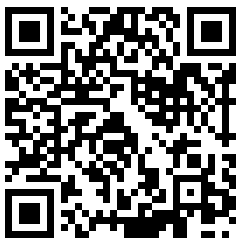جستاری بر رویکرد کدهای فرم-مبنا و جایگاه آن در طراحی شهری
چکیده:کدهای فرم-مبنا به عنوان رویکردی نسبتاً جدید، از قواعد برنامهریزی و طراحی شهری با هدف دستیابی به فضاهای عمومی کارا با نگرشی مکان- مبنا پشتیبانی میکنند. در واقع این رویکرد با در نظرگیری ویژگیهای زمینهای محیط شهری و چشمانداز آن، کدهایی را با کمک تفکر برنامهریز و طراح ایجاد میکند که، مبتنی بر چگونگی استقرار انواع گوناگون فرمهای شهری در مکانهای مختلف است. این کدها میتوانند با پیشبینی محیط ساخته شده از طریق کنترل و تنظیم فرمها، به بهترین چیدمان فرمی امکانپذیر در راستای پاسخگویی به نیازهای انسانی دست یابند. امروزه، در کشور ما نیز با توجه به پیچیدگیهایی که در طراحی شهری، در زمینه ایجاد تعادل و تعامل میان کاربری اراضی، فرم شهری و مکان استقرار آنها وجود دارد، نیاز به این رویکرد بیش از پیش احساس میشود. این مقاله، با هدف آشنایی بیشتر با روند تولید و تنظیم کدهای طراحی شهری با تأکید بر شرایط بومی، فرهنگی، اجتماعی و تاریخی تدوین گردیده است. لذا در آن سعی شده است رویکرد کدهای فرم-مبنا از رهگذر مفهوم، فرآیند و اجزای آن مورد بحث و بررسی قرار گرفته و به اختصار به برخی از چالشهای پیش روی این مفهوم پرداخته شود.
واژگان کلیدی: کدهای فرم-مبنا، کدهای هوشمند، پهنهبندی عرضی، منطقهبندی سنتی
A survey on the form-based code approach and its place in urban design
Abstract: Form-based codes, as a relatively new approach, support the rules of urban planning and design with the aim of achieving efficient public spaces with a location-based approach. In fact, this approach, by considering the contextual characteristics of the urban environment and its landscape, creates codes with the help of planner and designer thinking, which is based on how different types of urban forms are placed in different places. These codes can achieve the best possible layout in order to meet human needs by predicting the environment created by controlling and adjusting the forms. Today, in our country, due to the complexities of urban design, in the field of creating balance and interaction between land use, urban form and location, the need for this approach is felt more than ever. This article has been compiled with the aim of becoming more familiar with the process of production and regulation of urban design codes with emphasis on local, cultural, social and historical conditions. Therefore, it has tried to discuss the approach of form-based codes through the concept, process and its components and briefly address some of the challenges facing this concept.
Keywords: Form-based codes, intelligent codes, transverse zoning, traditional zoning


